French National Institute For Sustainable Development (IRD), France
The Institut de Recherche pour le Développement (IRD), has developed strong partnerships with West-Africa and Brazil for over 50 years. Concerning PADDLE topics and partnerships, the team involved in PADDLE already coordinates research projects on different topics in the Tropical Atlantic, e.g.: Acoustic surveys along the Brazilian Coast (Abracos); Ecosystem Approach to the management of fisheries and the marine environment in West African waters (AWA); Prediction and Research Moored Array in the Tropical Atlantic (PIRATA); Tropical Atlantic Interdisciplinary research group on physical, biogeochemical, ecological and human dynamics (TAPIOCA), and mapping marine environmental law (CEPIA). Thanks to their close links with UCAD, INDP, UFPE and UFRPE, and because IRD scientists work by residing in partners institutions during month to years, the IRD team will reinforce the capacities of the PhD students involved in the project. With well-established networks in West Africa and Brazil and because the IRD has permanent representation on both sides of the Tropical Atlantic, the team will guarantee knowledge transfer to stakeholders. The staffs of the associated institutions contribute their expertise in marine environmental law, marine ecology and physics. They lead WP1 and 5 and contribute to WP 1, 2, 3, and 5.

University of Western Brittany (UBO), France
The Université de Bretagne Occidentale aims to promote its research activity on the basis of academic excellence and national and international recognition by building upon scientific developments, innovating and transmitting knowledge, and emphasising the quality of education it provides. UBO is a remarkable multidisciplinary pool with national and internationally renowned research, spread between 37 research units, 16 of which are associated with major organizations such as CNRS, Ifremer, IRD, INSERM. The field of marine activities represents excellence and interdisciplinary cooperation, supported by the consolidation of nationally-recognized teams and their international partnerships. Most of these teams form part of the Institut Universitaire Européen de la Mer (IUEM), an internal school of UBO. IUEM is an interdisciplinary centre whose objectives are to spread knowledge on the marine world, to study and observe its interactions with the atmosphere and continental areas, to train researchers and staff in these fields, and to contribute to observing both natural and man-made changes in these environments. Two Laboratories of the IUEM take part in the paddle project (LEMAR and AMURE).

National Centre for Scientific Research (CNRS), France
As the largest fundamental research organization in Europe, CNRS conducts research in all fields of knowledge. The CNRS particularly encourages integrative approaches to environmental sciences which combine research with action, and contributes to the advancement of knowledge for sustainable development in order to meet social as well as economic needs. The CNRS has collaborated with many countries, in Africa and with Brazil, where it has a permanent office for collaboration. Members of the CNRS have long been working on projects that target Brazil, and have maintained strong relationships with several academics and institutions in this region. They participate in WPs 2 and 4.

University of Nantes
The University of Nantes is a multidisciplinary university, with programs in most fields of knowledge. Centered on maritime and coastal researches in the field of geography and planning, the team (LETG) involved in PADDLE is specialized in marine spatial planning and has strong methodological skills combining GIS-related approaches and social science techniques for the collection of spatial data collection and the analysis of complex socio-ecological systems. Several research projects on MSP have already been undertaken by the laboratory and the team is very actively involved in the international academic network the Marine Spatial Planning Research Network-MSPRN. Different members of the laboratory have long been working on projects that targeting West Africa, and have maintained close relationships with several academics and institutions in the region. They participate in WPs 3, 4 and 5.

Gaspar Frutuoso Foundation (FGF), Portugal
The Gaspar Frutuoso Foundation (FGF) is a Public Foundation of private law, endowed with legal personality, governance bodies and property, financially and administratively self-sufficient, which is governed by its statutes, internal regulations, Foundations Laws and other relevant legislation. Within a close cooperation with the UAC, the FGF aims to foster technological, social, cultural, artistic, economic, environmental and sports activities, among others, by promoting and participating in contests, programs and projects, as well as the development of training, consulting and information dissemination. FGF is also the management structure responsible for financial and formal UAC project management tasks, including contractual documents, organization of report distribution and archiving, financial records, cost claims, service acquisitions and scholarships, among other aspects. The Gaspar Frutuoso Foundation is part of University of Azores (UA-Portugal) which has strong experience in transferring knowledge on marine spatial planning. FGF leads WP4 in close collaboration with its teams.

University of the Azores (UAC)
The University of the Azores (UAc) is the only public university in the Autonomous Region of the Azores and was established in order to advance sustainable development and higher education in the Azores. It has campuses in Ponta Delgada (S. Miguel island), Angra do Heroísmo (Terceira island) and Horta (Faial island), numbers 264 teaching and researching staff, 192 administration and lab technicians and 3017 students, including undergraduate, MSc and PhD. The modern laboratory facilities in its three campuses and the equipment available, financed by projects and grants from international and national entities, and also from the Azores regional government, are more than adequate to carry out projects of great novelty and scientific value. UA also actively participates in the training session organised in WP1.

Faculdade de Ciências da Universidade de Lisboa (FCUL), Portugal
ASSOCIACAO PARA A INVESTIGACAO E DESENVOLVIMENTO DE CIENCIAS (FCiências.ID)
Following the change in legal status of all the Foundations in Portugal in 2012, FCIENCIAS (FCiências.ID), replaced in October 2016 the previous beneficiary - Fundação da Faculdade de Ciências da Universidade de Lisboa (FFCUL) [PIC 999 580 539]. The FCiências.ID was created in 1993 as a private non-profit organization by Faculdade de Ciências da Universidade de Lisboa (FCUL), a Higher Education Institution, in order to manage the R&TD activities of FCUL researchers. The FCiências.ID is thus the new organization that fulfills the R&D management needs of the FCUL in a transparent, but at once modern, agile and more efficient manner. FCUL was classified as an Excellent R & D Unit by FCT, the Portuguese national funding agency for science, technology and innovation. It comprises around 500 researchers including 240 with a PhD, 40 technicians and administrative collaborators. MARE laboratory contributes to the project notably by co-leading WP3 and participates in all the WPs. The researchers who participate in WP3 have already been involved in the process of MSP and marine conservation both in EU and Africa through EU INCO programmes for many years, and also have environmental government experience. The researchers who participate in WP2, 4 and 5 have wide experience in marine ecological modelling, marine conservation and environmental impact assessment, and have been involved in long-term cooperation with Cape Verde and Brazil.
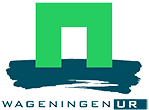
Wageningen University (WU), Netherlands
The Marine Governance team within the Environmental Policy Group (ENP) of Wageningen University (WU- Netherland) will bring a governance perspective to the network thanks to their deep knowledge of political and social theory, and research experience in a broad range of cases, in which spatial claims and conflicts at sea have been investigated. ENP has considerable experience in Africa. In PADDLE, the focus of the ENP marine governance team will be on the institutionalisation of planning processes, informal, ad-hoc arrangements of how to re-arrange space, the power dynamics of MSP-processes and the role of (traditional) knowledge and knowledge sharing between scientists and stakeholders, as a driving force of information in dealing with spatial conflicts at sea. Thanks to these skills, they lead WP3 and actively participate to WP1, 4 and 5.

Universidad De Sevilla (USE), Spain
The University of Seville (Spain) is committed to quality and excellence, has received the European Certificate of Quality for its European Foundation for Quality Management model of Excellence, and distinction as a Campus of International Excellence. The “Coastal Management and Geographical Information Technologies” research group is concerned with ocean policy and marine spatial planning, geographical information techniques, coastal dynamics and risks associated with the coastal environment, coastal regulations, and fisheries management. The team has been cooperating with WU, U Nantes, UAC and UBO for the last decade. They participate in WP3, 4 and 5.
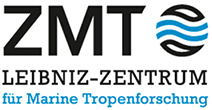
Leibniz-Zentrum für Marine Tropenforschung (ZMT), Germany
The aim of the Leibniz Center for Tropical Marine Ecology (ZMT-Germany) is to provide a scientific basis for the protection and sustainable use of tropical coastal ecosystems. In close cooperation with partners in West Africa and Brazil, the ZMT will be involved in all three case studies. The research teams involved in PADDLE have long-lasting expertise in coastal and estuarine fish communities and their relevance and value for artisanal, local and regional fisheries, in in-house collaboration with ecological modellers, biogeochemists, socio-economists and experts of social-ecological systems. With this broad inter- and transdisciplinary approach, ZMT is the ideal leader for WP2. The ZMT is already involved in training students and young scientists in tropical marine ecology, and also supports capacity building in this field of research. The ZMT participates in WP1 and in WP5.
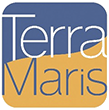
Terra Maris, France
Terra Maris is a small private firm with innovative expertise in geomatics applied to integrated marine and coastal zone management. It has already been involved in a number of research projects with IRD, UBO and CNRS mapping marine environmental law and human activities. Interactions with other partners will increase its potential for innovation in tropical zones. It sparticipate in WPs 3, 4 and 5 in tasks related to mapping.
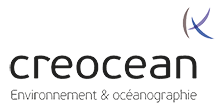
CREOCEAN, France
Creocean (France) is a consultancy company, which provides environmental, engineering and planning services in marine and coastal environments. The Research and Development team at Creocean develops new tools for applications (CIFRE PhD - public private PhD grant system in France) sizing offset environmental measures for sustainable coastal marine development strategy, development of several biological index for environmental monitoring dedicated on lagoons or sub-marine seascape, MELODI research program: Magnetic Explorers for Systematic Sulfides Investigation on deep Ocean Ridges, research on mangrove restoration, CREANURS research program for the CREAtion of specific coastal NURSeries, …) in cooperation with other academic institutions and is actively involved in WP2 and WP5.
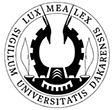
University Cheikh Anta Diop (Ucad), Senegal
Two departments of University Cheikh Anta Diop (UCAD - Senegal) participate in the project. They provide PhD Students and senior researchers in Marine Ecology and marine environmental law. There is a close link between UCAD, IRD and ZMT and the two latter teams are used to organising events in Dakar. The team participates in WP2, 3, 4 and 5. All marine conservation networks, which use to closely work with UCAD (Regional Partnership for Coastal and Marine conservation in western Africa http://www.prcmarine.org/en, Commission Sous Régionale des Pêches (http://www.spcsrp.org/) will be used to insure the diffusion of the PADDLE results.
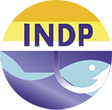
National Institute For The Development Of Fisheries (INDP), Cape-Verde
National Institute for the development of Fisheries (INDP) is the Cape Verde administration in charge of conducting studies and implementing actions in the different fields of science involved in fishing in Cape Verde. Seven researchers and four PhD students participate in the project in biology, economy and sociology. They actively contribute to several tasks in WP 2, 3, 4 and 5.
Universidade Federal Rural De Pernambuco (UFRPE), Brazil
Two Departments (Fisheries and Aquaculture, and Statistics and Informatics) of the Universidade Federal Rural de Pernambuco (URFPE-Brazil) take part in PADDLE. The Department of Statistics and Informatics has three main areas: statistics, informatics and computing Systems. The Department of Fisheries and Aquaculture is responsible for the post-graduate (MSc and PhD) programme in fisheries resources and aquaculture (MSc and PhD). UFRPE is involved in the Abracos Project and is also linked with IRD through exchanges of post-graduate students and through different projects. They participate in WP2 and 5.

Universidade Federal De Pernambuco (UFPE), Brazil
The Oceanography Department of Universidade Federal de Pernambuco (Brazil) has a long history of cooperation with IRD (Project PIRATA and more recently Project Abracos) and with UFPE (INCT Ambtropic). The team is also currently developing a project with ZMT. They have been involved in several cooperation projects on the Tropical Atlantic and play an important role in WP2.

Universidade Presbiteriano Mackenzie (UPM), Brazil,
The Instituto Presbiteriano Mackenzie (IPM-Brazil) is the maintenance entity of Universidade Presbiteriana Mackenzie, a private educational institution and non-profit organization with over 140 years of history, ranked among the best and largest universities in Brazil. The participation of the UPM team in the PADDLE consortium contributes to strong knowledge of marine environmental law in Brazil. The team has already been involved in a number of projects on marine environmental law in Brazil (e.g. Brazilian Strategy for the sustainable development of living and non-living marine resources- CAPES) and has built links with IRD and UBO in the last few years. The team participates in WP1, 3 and 5.
Union Internationale Pour La Protection De La Nature (IUCN), Senegal
IUCN aims to support public authorities, local communities and actors in the environmental sector, to promote sustainable development and good environmental governance. Secondments of IUCN team allows them to join the PADDLE events (WP1) and ensure the link between researchers and parliamentarians in West Africa. IUCN is also involved in the organisation of seminars on tropical MSP in the national assemblies in Cape Verde and Senegal (WP3).


